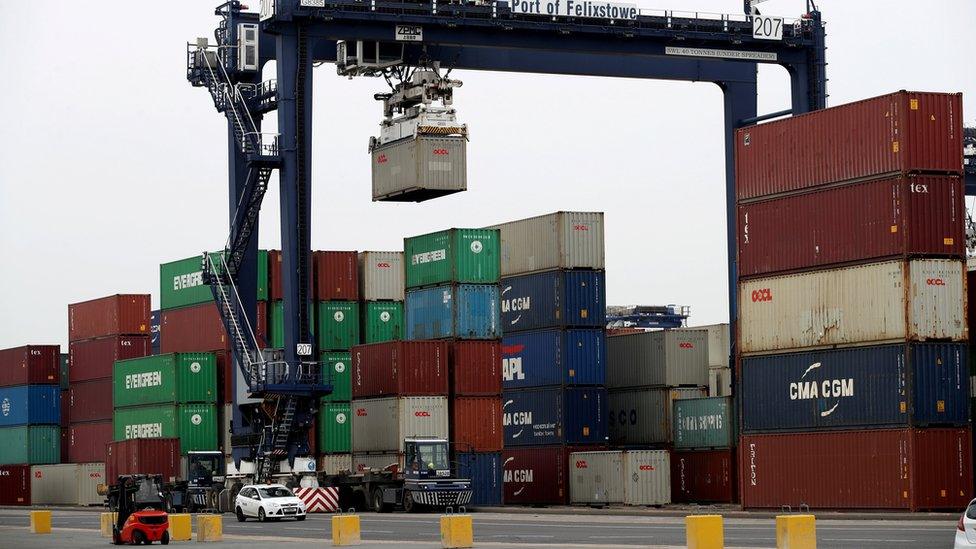Port of Felixstowe strike: 'This pay rise makes a big difference'
- Published
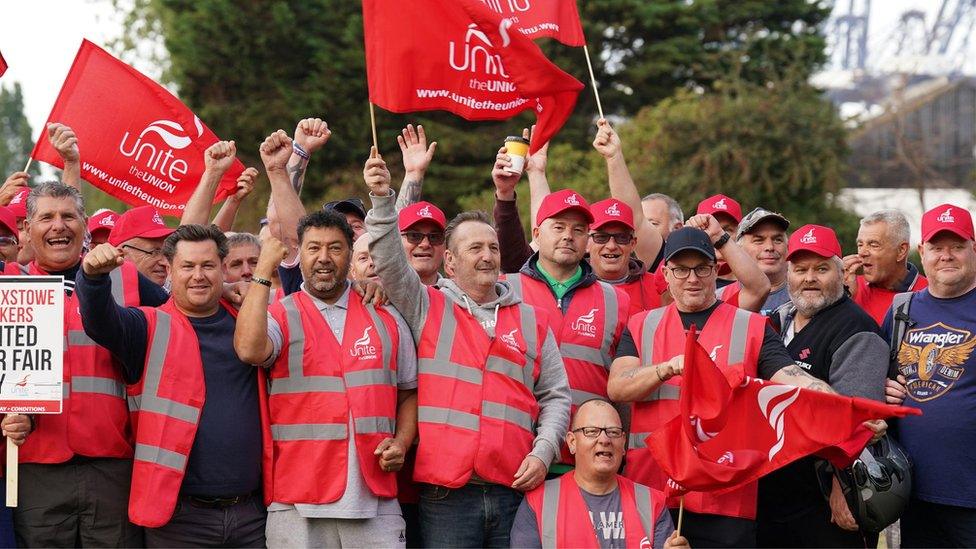
Strike action at the port is expected to last until 29 August
A third day of industrial action is under way at the Port of Felixstowe in Suffolk. Why are some 1,900 workers at the UK's busiest container port walking out?

'All we're asking for is a fair pay deal'
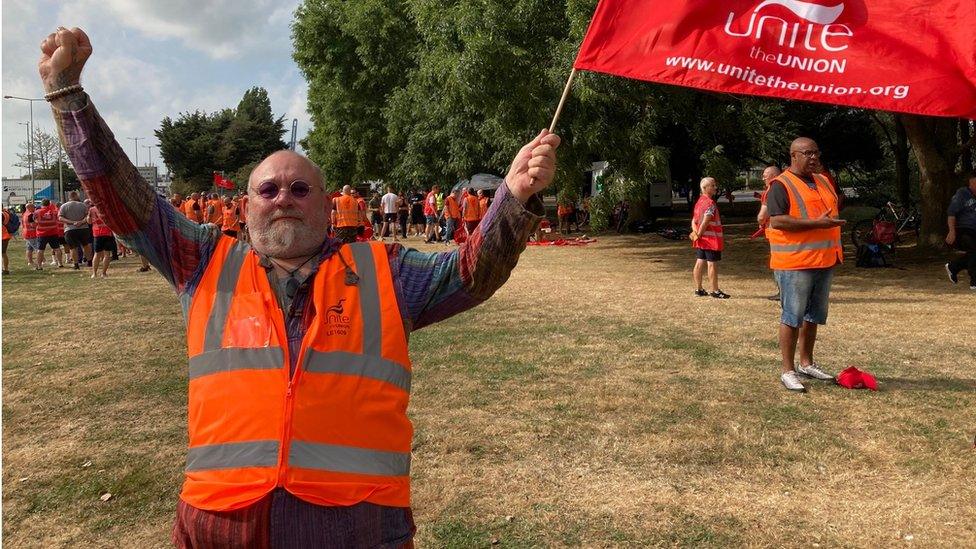
Steven Brown, who has worked at the port for 38 years, says they want to ensure a "decent living" for newer members of staff
Members of the union Unite who work at the Port of Felixstowe are on day three of eight of planned industrial action.
Unite says members rejected a 7% pay offer from the Felixstowe Dock and Railway Company, which it says was below the rate of inflation.
It is the first time in 30 years that dock workers have gone on strike - something tug driver Steven Brown says he "never expected or wanted" to do.
The 52-year-old from Felixstowe, who has worked at the port for 38 years, says: "The company has made £233m profit in the last two years, £100m of that has gone to shareholders, and with the rate of inflation as it is, it's 12%, all we're asking for is a fair pay deal compared to the cost of living."
He says among those on strike are people who have worked at the port for 40 years and some newer members of staff.
"It's for the ones who have been working here for six months is why we're here, so that they can have a decent living," he says.

'They travel all this way just to work'
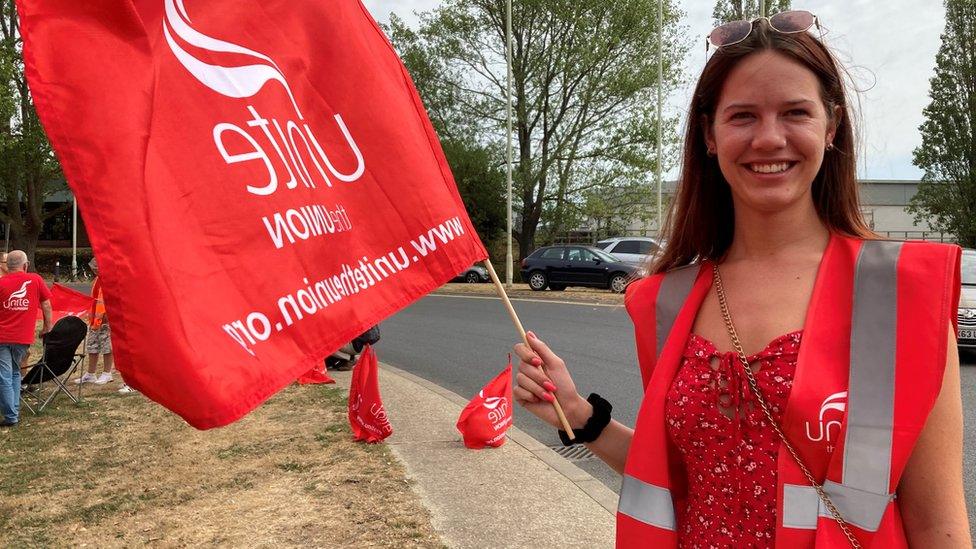
Tug driver Caitlin Du Plessis, 24, says she is seeing the difference with the rising cost of living
Among those newer members of staff is Caitlin Du Plessis, who has worked at the port for almost 18 months.
The 24-year-old, who lives in Felixstowe, says she is seeing the difference with the rising cost of living.
"I used to put £20 in my tank of fuel and it would get me more than a quarter of a tank, nearly half a tank, and now I put £20 in and it doesn't even reach quarter tank, it makes a lot of difference," she says.
"So this pay rise makes a lot of difference to our monthly bills, outgoing costs and everything, even just driving to work as a lot of people don't live in Felixstowe and they travel all this way just to come to Felixstowe for work."
The tug driver says they are also striking for "better conditions" and they want new equipment to help make their jobs "more comfortable and safe".

'We do long hours and work hard in all conditions'
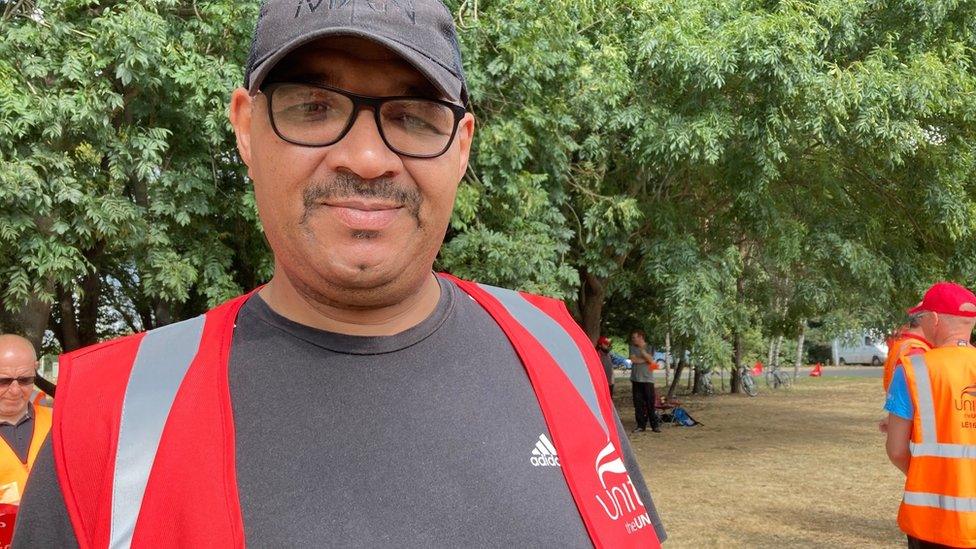
Adrian Nurse works 12-hour shifts at the port in "all conditions"
Similarly, Adrian Nurse is experiencing the effect of rising bills at home.
The 52-year-old, who has four children and 11 grandchildren, drives from Ipswich to Felixstowe for his 12-hour shifts at the port.
He says it used to cost £10 for a couple of days' fuel but now it is £10 a day.
"Before you used to be able to save a little bit but now it's all going out of the door, gas, electric, it's all gone up and it's still going up," he says.
"I thought the idea of working was to better yourself, not to go backwards."
Mr Nurse, who started working at the port last year, says it is a "nice" job but "we do long hours, we work hard in all conditions".
"It seems unfair that the company is making so much money but they're not passing it down," he says.

'If the company wishes to negotiate, we'll negotiate'
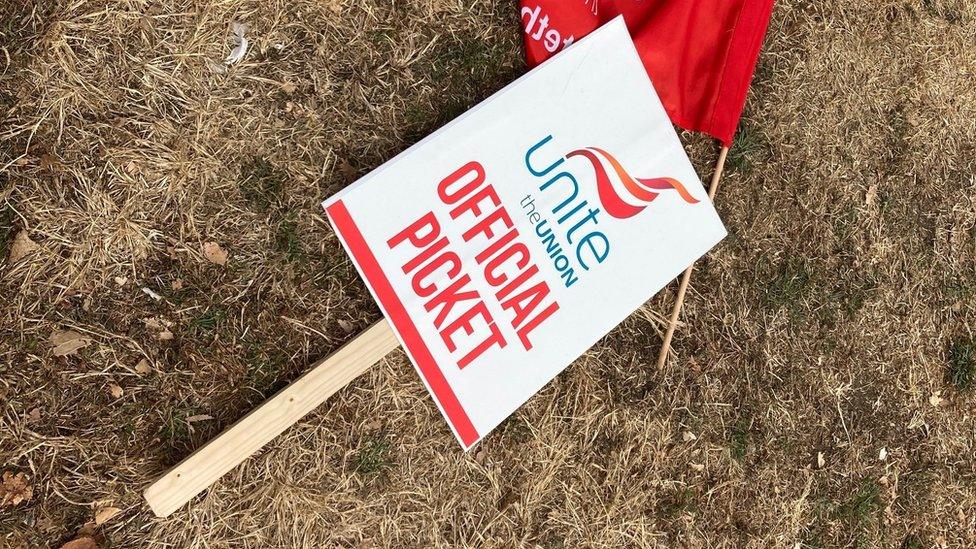
Unite says more strike dates will be announced if a deal is not found
About 2,550 people work at the Port of Felixstowe - the country's busiest port, handling about 48% of the UK's container trade.
Striking workers include crane drivers, machine operators and stevedores, who load and unload ships.
Unite's national officer, Robert Morton, says members want an "increase to match inflation and not to come back with anything less".
He adds: "I don't think 7% is a particularly generous offer in relation to the company's profits."
The company says the average wage of workers is around £43,000 but Mr Morton says some of the union's members were on £20,000 a year, so the "figures don't equate".
He says industrial action is the "last resort" but if the company is not behind the negotiating table at the end of eight days, they "will announce more strike dates".
"If the company wishes to negotiate, we'll negotiate," Mr Morton says.
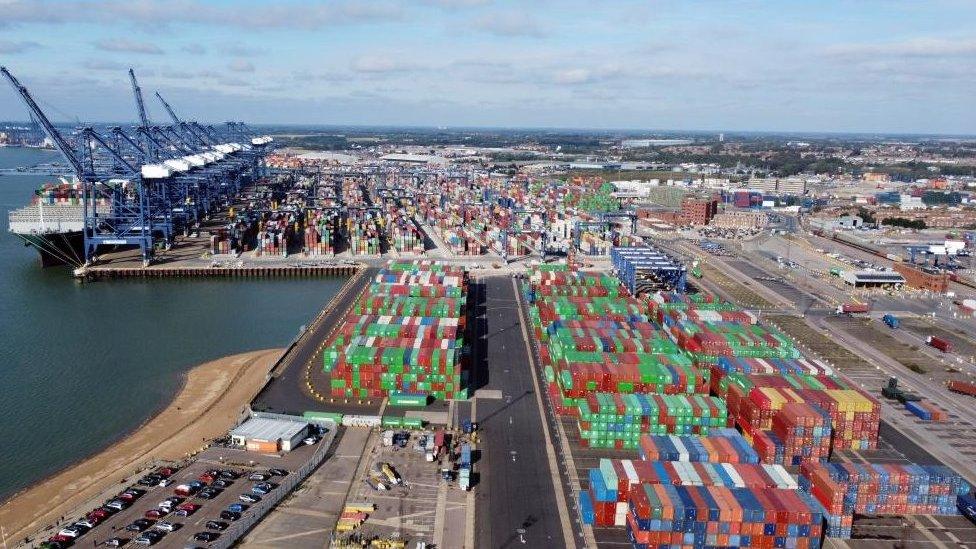
The port handles about 48% of the UK container trade
Port spokesman Paul Davey says the strike action is "unnecessary".
He says it will not only affect the port that handles about four million TEU (twenty foot equivalent unit) containers a year from 2,000 ships but also "the whole area".
"The offer we've made to them is worth £3,500 extra this year in their pockets and the strike Unite has called is actually going to take the thick end of £1,000 out of each of their pockets," he says.
"We will talk if they suspend the strike and they are committed to finding a resolution."
Mr Davey says the port's offer of 7% plus £500 is worth 8.1% or 9.6%, which he says is "not far off inflation now and it's better than most people can expect to receive in the current economic climate".
"Our workers are paid very well, we pay 40% above the national average and we're pleased and proud that we can pay those levels of wages because the port is profitable," he adds.
Strike action at the port is expected to last until Monday, 29 August.

Find BBC News: East of England on Facebook, external, Instagram, external and Twitter, external. If you have a story suggestion email eastofenglandnews@bbc.co.uk, external
Related topics
- Published22 August 2022
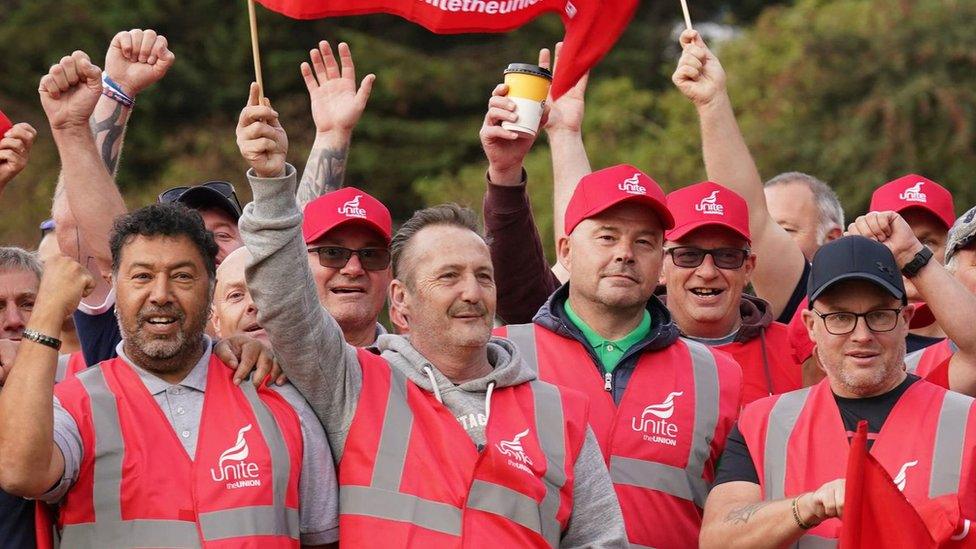
- Published21 August 2022
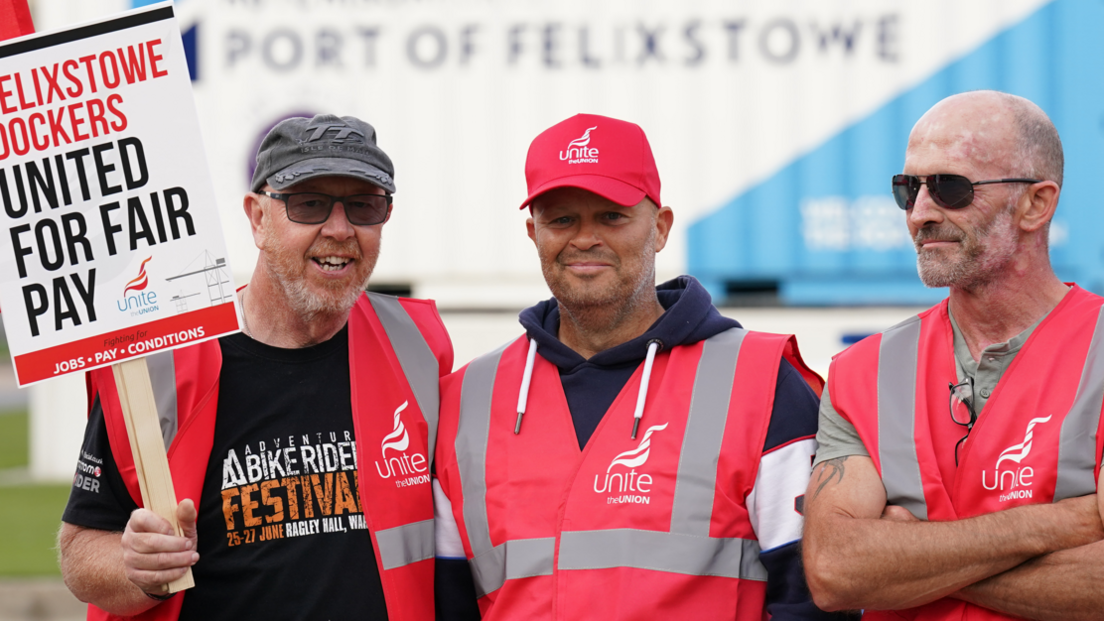
- Published5 August 2022
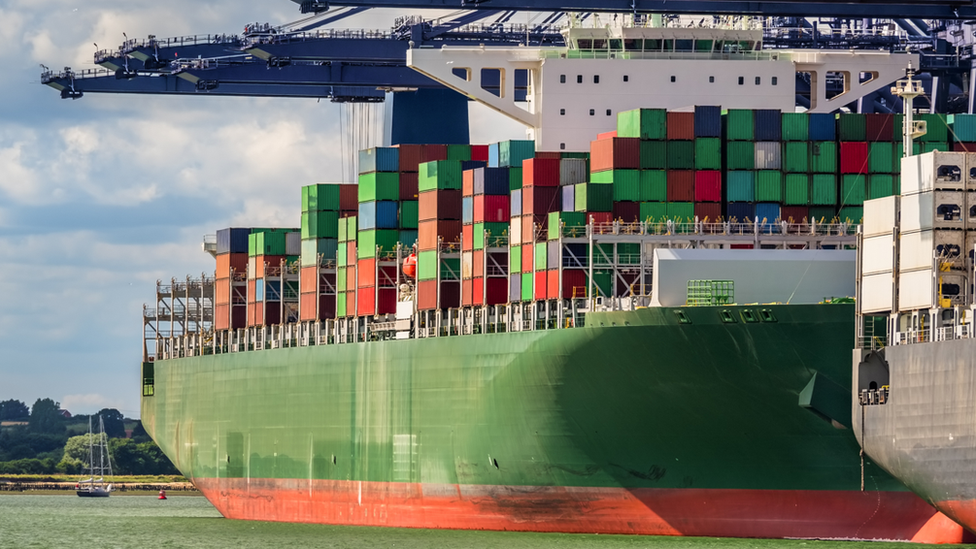
- Published28 July 2022
